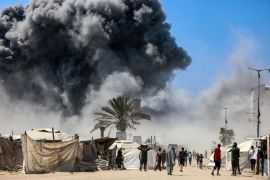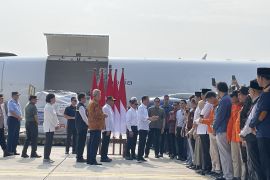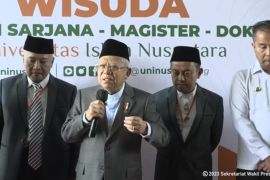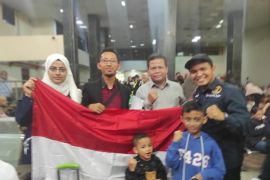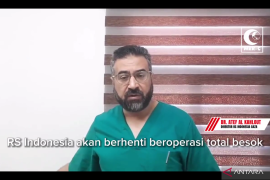Hamas prime minister Ismail Haniya "issued instructions to the ministry of interior and to security chiefs to preserve the national consensus among Palestinian factions in the Gaza Strip for its protection," said an official statement, referring to the truce agreement.
The statement was read out by government spokesman Taher al-Nunu after a top-level meeting between Haniya and his ministers with the heads of security and police forces in the Gaza Strip.
At the meeting, Haniya told security chiefs it was their responsibility to "protect the Palestinian ship" and stressed the importance of cooperation between all of the different factions, it said.
Late on Wednesday, Hamas officials had met the main militant groups which had agreed to observe "national understanding" about a period of calm, and to avoid doing anything likely to provoke a strong Israeli reaction.
At the meeting, Hamas passed on a message from Egypt and other Arab leaders about the threat of a new Israeli operation in response to a rise in rocket fire from Gaza.
After Thursday`s announcement, Haniya phoned Egyptian intelligence chief Omar Suleiman to brief him about the situation and his meeting with the security chiefs, an official in his office said.
"He informed Suleiman about the decision of the Haniya government to protect the national understanding," he told AFP.
Earlier a Hamas minister told AFP the enclave`s rulers would be sure to protect the calm.
"The national understanding among the factions means they won`t give Israel any reason to make war on Gaza," he said, as Hamas security forces fanned out along the northern and eastern sectors of the border to enforce the truce.
"The government will protect this understanding because we don`t want another tragedy to befall the Palestinian people," he said.
"Now Gaza is quieter than it has been since 2007 and Israel knows this."
The deployment of security personnel began overnight and continued on Thursday, with witnesses and an AFP correspondent confirming Hamas had beefed up its forces along the border east of Gaza City, as well as to the north, and were checking all cars on roads leading to the border.
In past weeks, Gaza militants have fired scores of rockets into the Jewish state, prompting a flurry of retaliatory air strikes and raising fears of another massive operation along the lines of the 2008-9 war.
The 22-day conflict, which ended in a ceasefire on January 18, 2009, killed 1,400 Palestinians, more than half of them civilians, and 13 Israelis, 10 of them soldiers. (*)
Editor: Kunto Wibisono
Copyright © ANTARA 2011
